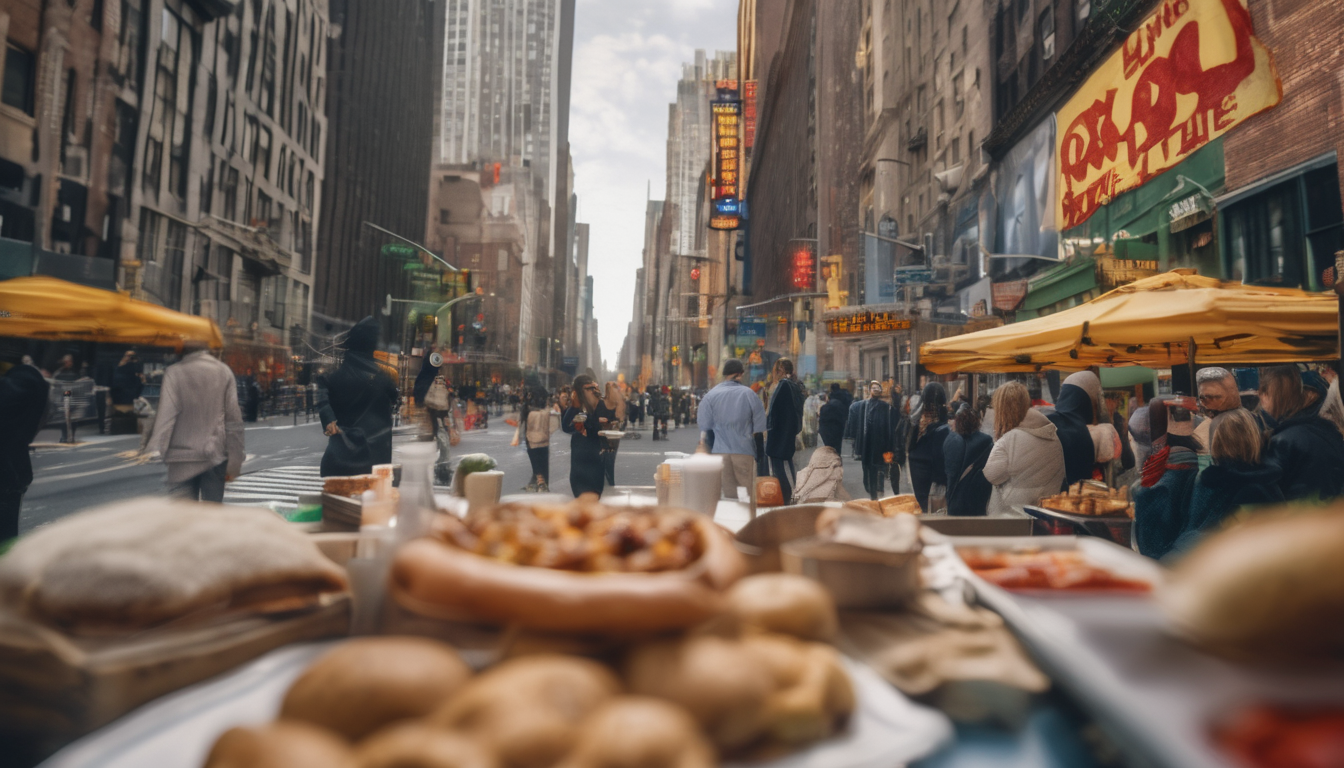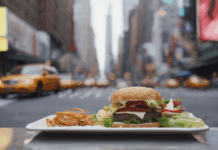Explaining religious food restrictions to Americans in NYC requires understanding both your dietary laws and how to communicate them clearly in workplace, school, and social settings across the city’s diverse boroughs.
As of November 2025, New York City’s Human Rights Law provides stronger protections than ever for religious dietary accommodations, particularly in employment and educational settings. The key is framing your needs as specific requirements rather than preferences, which helps Americans understand the non-negotiable nature of religious food laws. Most New Yorkers encounter diverse dietary needs regularly, but many still don’t grasp the difference between choosing to avoid certain foods and being religiously obligated to do so.
The challenge often lies in the details. While most Americans understand concepts like kosher or halal in general terms, they may not realise the complexity involved in food preparation, shared cooking surfaces, or timing restrictions like Ramadan fasting hours. Restaurant staff, colleagues, and even well-meaning friends can inadvertently create awkward situations when they don’t understand why you can’t simply “pick around” forbidden ingredients or why certain seemingly identical foods are acceptable from one source but not another.
This guide provides specific scripts for common NYC scenarios, from explaining your needs to HR departments and school administrators to navigating religious food restrictions NYC social situations with American colleagues. You’ll learn how to communicate your requirements clearly without lengthy theological explanations, identify your legal rights in different settings, and handle pushback or confusion with confidence. We’ll also cover practical strategies for finding compliant food options across all five boroughs and building understanding with the Americans you encounter daily.
Understanding Religious Food Laws in NYC

How to Explain Religious Food Restrictions in NYC: 2025Guide
If you’ve recently moved to New York City from Indonesia or India and need to explain your religious food restrictions to friends, colleagues, or even restaurant staff, you might find it trickier than expected. In a city full of diverse cuisines and fast-paced lifestyles, getting your dietary needs understood clearly can save you from awkward moments or worse, uncomfortable meals. Here’s what I’ve learned living in Queens, using the subway to get around, and navigating NYC’s food scene in the last six months.
Why Explaining Religious Food Restrictions in NYC Can Be Confusing
Here’s the thing though: even though NYC is a melting pot, many people don’t know the specifics behind your food restrictions. For example, halal and kosher might be somewhat familiar terms, but explaining why certain ingredients or preparation methods are off-limits can get complicated fast. People often confuse vegetarianism with religious fasting rules or don’t realise cross-contamination is a big deal for you.
Plus, the language barrier and fast service environments don’t help. I’ve found that sometimes staff just nod without really understanding, so you end up eating food you shouldn’t or spending extra time searching for safe options. It’s frustrating, especially when you just want to grab a quick bite after a long day or on your way home.
Three NYC Spots Where You Can Practice Your Explanation and Find Support
- Jackson Heights, Queens (Subway: 7 train, 74th Street-Roosevelt Avenue stop)
This neighbourhood is a goldmine for South Asian and Indonesian groceries and halal-certified restaurants. When explaining your restrictions here, you’re more likely to find someone who understands halal, vegetarian, and other religious food needs. Shops like the Patel Brothers supermarket on Roosevelt Ave have staff familiar with religious dietary laws. You can even ask them about specific products or halal certification labels.
- Koreatown, Manhattan (Subway: 34th Street-Herald Square stop)
Koreatown has many restaurants that accommodate various dietary restrictions, and the staff are used to tourists and locals alike asking detailed questions. If you need to explain your food restrictions, try visiting during off-peak hours (around 2-4 PM) for a more relaxed conversation. Places like BCD Tofu House are good for explaining vegetarian or vegan needs influenced by religious reasons. You’ll find it easier to get them to modify dishes.
- Bay Ridge, Brooklyn (Subway: R train, 77th Street stop)
Bay Ridge hosts a sizeable Muslim and Indian community. You’ll find halal-certified meat markets and eateries such as Al-Noor Halal Meat Market on 3rd Avenue. Here, speaking directly with the butcher or owner can help you clarify exactly what you need, like avoiding pork or alcohol-based ingredients. This direct contact is gold when you want to avoid confusion.
A Simple Step-by-Step Guide to Explaining Religious Food Restrictions to Americans in NYC
-
- Step 1: Start with the basics – explain which foods you cannot eat (e.g., pork, beef, alcohol, gelatine) and why (religious prohibition).
- Step 2: Clarify if you need food prepared separately to avoid cross-contamination (important for halal/kosher diets).
- Step 3: Mention if you follow fasting days or avoid certain foods temporarily (this helps in social settings).
- Step 4: Ask if they use any sauces or additives you should avoid. Many sauces contain alcohol or animal products.
- Step 5: Confirm if the establishment has any certification (halal/kosher) or if they can recommend safe
Common Dietary Requirements and Restrictions
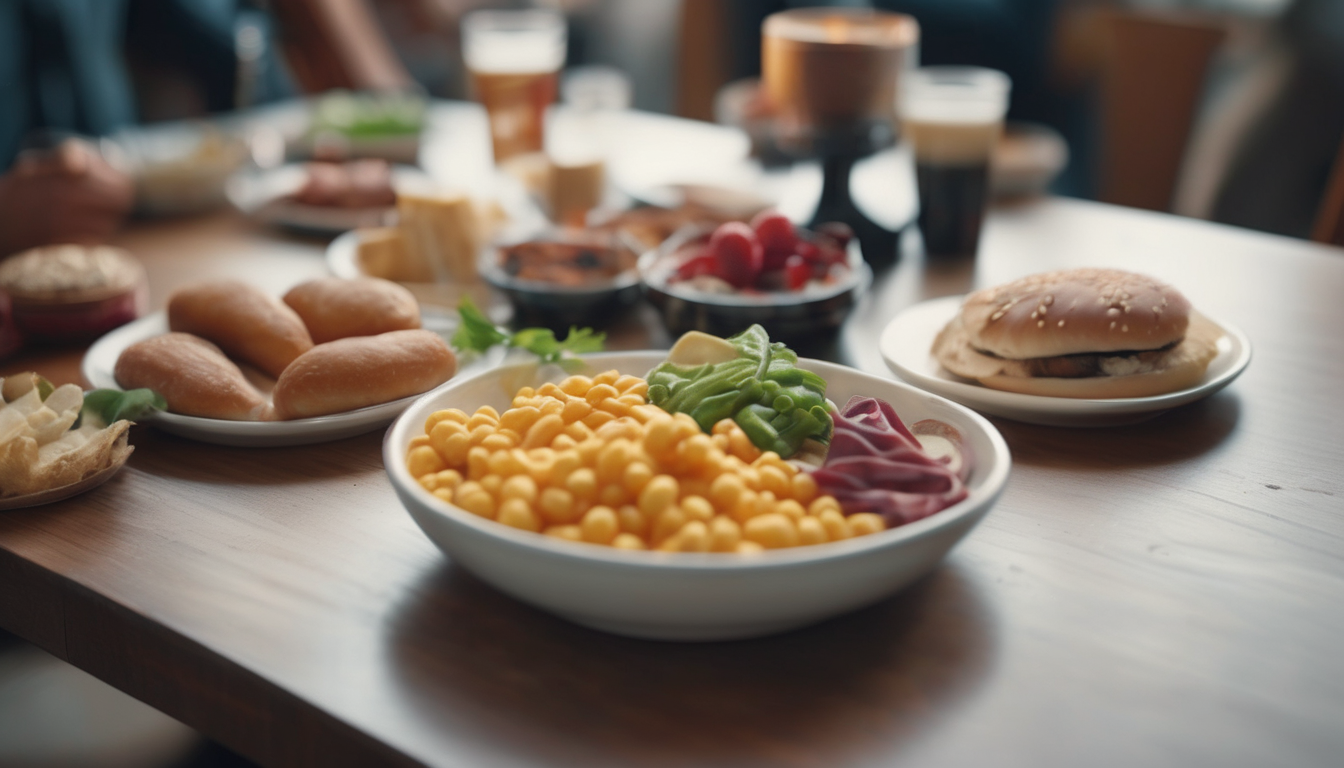
How to Explain Religious Food Restrictions in NYC: 2024 Guide
If you’ve recently arrived in New York City and need to explain your religious food restrictions—whether halal, kosher, vegetarian for Hindu reasons, or something else—you’re probably finding it tougher than expected. I’ve been there, living in Queens, hopping around on the subway, figuring out how to make sure the food I eat respects my beliefs without endless questions or confusion. Here’s what actually works for Indonesian and Indian immigrants navigating this in NYC as of November 2024.
Understanding the Core Challenge
The problem isn’t just that Americans don’t know your food rules—it’s that many restaurants and even friends mix up terms or assume all religious diets are the same. For example, “halal” and “kosher” aren’t interchangeable, and “vegetarian” can mean different things depending on whether you’re avoiding meat, eggs, or dairy. You’ll often have to explain what you can and can’t eat quickly, especially when ordering food or grocery shopping.
Here’s the thing though: many people in NYC are eager to help once you explain clearly, but you need to be prepared with simple, clear terms and sometimes visual aids (like a small printed card). Don’t expect everyone to understand overnight, but you can make it easier for yourself.
Best Local Spots for Help and Food
If you want to find places that truly respect religious food restrictions, here are three spots I’ve found helpful. I’ve included nearby subway lines and some insider tips.
Location Why It Helps Subway Stop Jackson Heights, Queens (74th St – Broadway) Many halal and vegetarian Indian and Indonesian restaurants, staff familiar with religious diets 7 train Upper West Side, Manhattan (Columbus Ave & 86th St) Several kosher-certified eateries and grocery stores with clear labelling B or C train Bay Ridge, Brooklyn (3rd Ave & 69th St) Halal butchers and specialty stores that understand Muslim dietary laws R train to Bay Ridge – 95th St, then local bus or walk Quick tip: Jackson Heights is your best bet if you’re looking for a mix of halal and vegetarian food in one place, and it’s easy to reach on the 7 train. Avoid weekday lunch hours if you want a quieter experience since it can get very busy.
How to Explain Religious Food Restrictions Clearly
When you’re ordering or explaining your diet, here’s a simple checklist that helped me avoid confusion:
-
- Start with your religion or culture: “I follow halal dietary rules” or “I don’t eat beef for religious reasons.”
- Specify forbidden items: “No pork, no alcohol, no cross-contamination with non-halal meat.”
- Explain allowed items: “Chicken and fish are okay if halal-certified.”
- Ask about preparation: “Is this cooked with shared utensils or separate ones?”
- Use visual aids: Carry a card written in English explaining your restrictions or use an app with food restriction phrases.
Here’s a small practical difference: When ordering at a halal spot, saying “
How to Communicate Your Food Needs
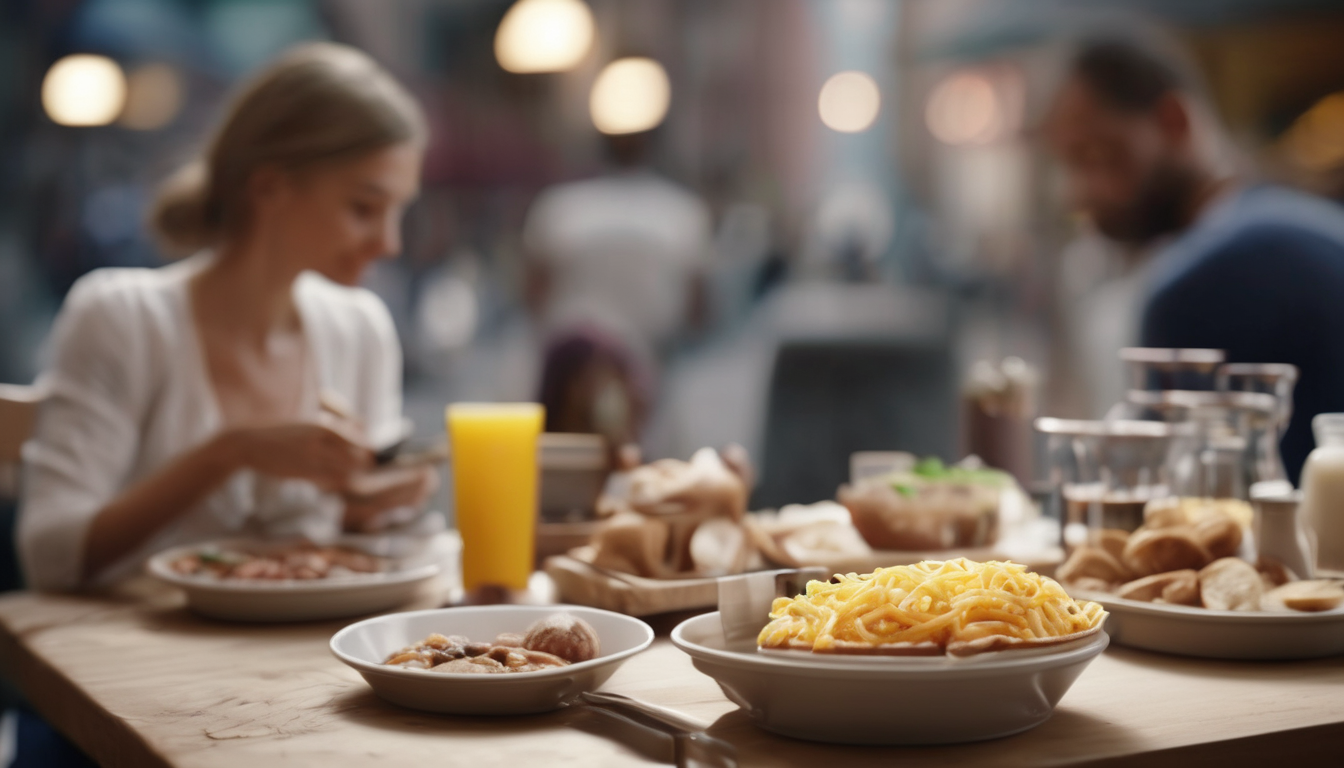
How to Explain Religious Food Restrictions in NYC: 2024 Guide
If you’re new to New York City and trying to explain your religious food restrictions to friends, colleagues, or even at restaurants, it can quickly get confusing. Especially here in Queens, where the food scene is vast but not always familiar with specific dietary needs from Indonesia or India. As of November 2024, here’s what I’ve learned navigating this myself — shortcuts, frustrations, and practical tips included.
Why It’s Tough Explaining Religious Food Restrictions in NYC
Here’s the thing: many Americans don’t know the subtle differences between halal, kosher, vegetarian, or specific fasting rules common in Indonesian or Indian traditions. At first, I thought just saying “I don’t eat pork” or “I’m vegetarian” would be enough — but that’s often not the case. You’ll need to explain things clearly without sounding like you’re lecturing or confusing them.
Also, many food places use generic labels that don’t always match your restrictions. For example, halal meat in one halal-certified restaurant may not meet your specific standards. Or the “vegetarian” option might include eggs or dairy, which some of you might avoid for religious reasons.
Best Spots in NYC to Get Help or Buy Compliant Food
If you want to avoid misunderstandings, sometimes it’s easier to shop or eat where staff already understands your needs. Here are three spots I trust:
Location Details Nearby Subway Jackson Heights, Queens Small halal butchers and Indian grocery stores near 37th Ave & 74th St sell certified halal lamb and chicken. Staff speak multiple languages and can help explain restrictions. 74th St – Broadway (7 train) Jackson Heights Indian Food Stores Speciality vegetarian and vegan Indian snacks with no onion/garlic, aligned with many religious rules. Try “Patel Brothers” at 37-11 74th St. 74th St – Broadway (7 train) Manhattan’s Halal Meat Market In the East Village, 1st Ave & 9th St, this market has clear halal certification and staff who understand different religious nuances, great if you’re near downtown. Astor Place (6 train) Step-by-Step: How to Explain Your Food Restrictions Clearly
Here’s a checklist I use when talking to anyone about my dietary needs:
-
- Step 1: State your main restriction simply — e.g., “I only eat halal meat.”
- Step 2: Clarify specifics — “No pork or pork by-products at all, and no alcohol in cooking.”
- Step 3: Mention any additional rules — vegetarian? Vegetarian but no onion or garlic? Fasting days to consider?
- Step 4: Ask if the food preparation area is shared with non-compliant items (cross-contamination can be a big issue).
- Step 5: If at a restaurant, ask for ingredient lists or menus that specify religious certifications.
- Step 6: Thank the person for understanding — a little politeness goes a long way!
Quick tip
Navigating Restaurants and Social Situations
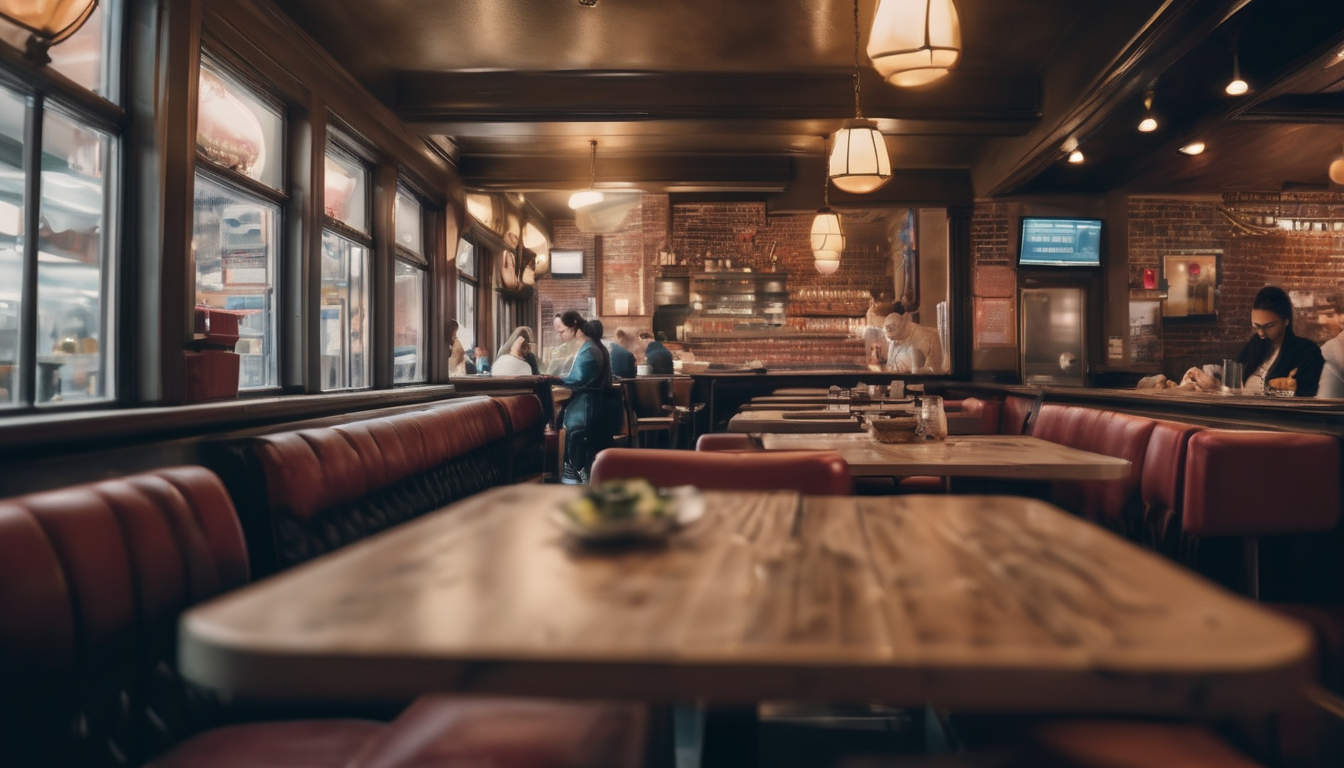
How to Explain Religious Food Restrictions in NYC: 2024 Guide
If you’re new to New York City, especially from Indonesia or India, and you need to explain your religious food restrictions to Americans — whether at work, school, or just when eating out — it can feel like a maze. You want to respect your beliefs, but also avoid awkward conversations or mistakes. As of November 2024, I’ve been through this exact challenge here in Queens, using the subway and local spots, and I’m sharing what actually works.
What’s the Core Confusion?
Here’s the thing: Americans often just don’t get the details behind religious food rules like halal, kosher, or vegetarianism based on spirituality. You’ll be asked “Why can’t you eat this?” and the quick answers sometimes don’t cut it. People might assume all “halal” is the same or that vegetarian means no onion or garlic (which isn’t always true in Hinduism). So you need a clear, simple way to explain — without sounding like you’re lecturing or causing a fuss.
Plus, many restaurants and stores label foods vaguely or incorrectly. Even in a multicultural city like NYC, it’s not unusual to find “halal” meats next to non-halal ones or vegetarian dishes cooked with non-vegetarian ingredients. This can be genuinely frustrating and confusing.
Three NYC Locations Where I Learned the Ropes
-
- Jackson Heights, Queens (Subway stop: Jackson Heights-Roosevelt Ave, E/F/M/R trains)
- This neighbourhood is a melting pot with many halal, kosher, and vegetarian-friendly restaurants and shops. I found people generally more understanding here — locals often come from similar backgrounds, so explaining your restrictions is easier. For example, at the 74th Street Food Court, vendors usually display halal certification clearly, but you’ll want to double-check by asking if meat is slaughtered according to Islamic law.
- Koreatown, Manhattan (Subway stop: 32nd St-Herald Sq, B/D/F/M/N/Q/R/W trains)
- Surprisingly, Koreatown has a variety of vegetarian and seafood places that are popular with Indian vegetarians. You’ll still need to explain that “vegetarian” in your religion might exclude eggs or certain spices. Here, I recommend bringing a simple phrase in English and your native language to show the chef (for example: “No onion, no garlic” or “Halal meat only”).
- Borough Park, Brooklyn (Subway stop: 13th Ave, D train)
- This heavily Orthodox Jewish neighbourhood is the best place to ask about kosher food. Many stores have kosher certifications displayed, but it’s helpful to explain which kosher rules you follow if you have any variations. Most store owners appreciate polite questions, and you’ll often find bilingual staff who can help.Practical Checklist to Explain Religious Food Restrictions
Here’s a simple checklist I use whenever I eat out or shop:
-
- Identify your key restrictions: halal, kosher, vegetarian, vegan, no onion/garlic, etc.
- Learn or prepare short English phrases: “Is this halal certified?” “Does this contain onion or garlic?” “Is this meat slaughtered according to Islamic law?”
- Bring a translation card: A small printed card with your restrictions in English and your native language helps avoid miscommunication.
- Check for certification symbols: HALAL, KOSHER, or VEGAN logos on packaging or menus.
- Ask about cross-contamination: Some places use the same utensils for meat and vegetarian dishes.
- Stick to trusted neighbourhoods or stores: Jackson Heights for halal, Borough Park for kosher, Koreatown for vegetarian-friendly.
Building Understanding with American Colleagues

How to Explain Religious Food Restrictions in NYC: 2024 Guide
If you’ve recently arrived in New York City from Indonesia or India, you’re probably already juggling a lot—finding your way around, settling in, and figuring out how to explain your religious food restrictions to Americans here. The truth is, it’s not always straightforward. As of November 2024, I’ve been living in Queens and navigating this myself, so here’s what actually works, plus some local hacks I wish I knew earlier.
Why Explaining Religious Food Restrictions Can Be Tricky in NYC
Here’s the thing though: Americans often don’t understand the nuances of religious food rules, especially when you’re talking about halal, kosher, vegetarian, or other dietary laws from Indonesia or India. They might lump all restrictions under “vegetarian” or “no pork,” but it’s rarely that simple. Also, many food outlets don’t label items clearly, and language barriers don’t help either.
You’ll need to be clear, patient, and sometimes repeat yourself. I’ve found that having some handy phrases ready and knowing where to shop makes a huge difference.
Best Places in Queens to Find Food That Respects Your Dietary Rules
For practical shopping and eating out, here are my top three spots where you’ll find staff who either understand or are used to religious food restrictions:
-
- Jackson Heights, 74th Street & Roosevelt Avenue (Subway: 7 Train, Jackson Heights-Roosevelt Ave stop)
-
-
- This neighbourhood is a gem for South Asian and Southeast Asian groceries and restaurants.
- You’ll find halal meat shops and Indian vegetarian stores that often label their products clearly.
- Insider tip: Visit early on weekends (around 9-10 am) to avoid crowds and get fresh stock.
- Murray Hill, 37th Avenue & 82nd Street (Subway: 7 Train, 82nd Street-Jackson Heights stop)
- A smaller area but reliable for halal bakeries and Indian sweets that comply with religious restrictions.
- Friendly shop owners are usually happy to explain what’s in their food if you ask politely.
- Quick tip: Bring a note in Bahasa Indonesia or Hindi explaining your restrictions to avoid confusion.
- Bay Ridge, 3rd Avenue & 67th Street (Subway: R Train, Bay Ridge-95th Street stop)
- Not as crowded but great for kosher and halal markets, especially if you want to avoid the bustle of Queens.
- Shops here tend to have better labelling, and some specialise in imported Indian and Indonesian products.
- Money-saving tip: Buy in bulk on weekdays to negotiate better prices.
How to Explain Religious Food Restrictions: A Simple Checklist
When you’re at a restaurant, grocery store, or food stall, use this checklist to make sure you communicate your needs clearly and avoid mistakes:
-
-
- Identify key restrictions: e.g., no pork, no beef, only halal or kosher meat, vegetarian, no cross-contamination.
- Learn basic phrases: “Is this halal?” “Does this contain beef?” “Can you confirm no cross-contact with pork?”
- Ask for ingredient lists or labels: Many places will show you packaging or menus on their phone.
- Bring a note: Sometimes writing it down in English and your native language helps, especially in busy places.
- Confirm preparation methods: For example, fried in separate oil, no alcohol in sauces.
- Be patient but firm: It’s okay to politely ask multiple times to be sure.
-
Insider Tips That Save You Time and Headaches
- Shortcut to halal meat in Jackson Heights: Instead of wandering through the crowded markets, head straight to Halal Meat Mart on 74th Street between Roosevelt Avenue and 37th Road. They usually have fresh halal chicken and lamb around 10 am daily and they understand religious restrictions well.
- Subway hack: When going from Queens to Bay Ridge for kosher groceries, take the 7 train to Queensboro Plaza, transfer to the N or R express train—this saves 20 minutes compared to the local train.
- Avoid rush hour shopping: Most markets get packed between 5-7 pm on weekdays. I’ve wasted time waiting in line just to ask simple questions. Early mornings or early afternoons are quieter.
What’s Still Confusing or Frustrating
The hardest part is that not all Americans working in food service are trained on religious restrictions, so you’ll sometimes get vague answers like “I think it’s okay” or “We don’t use pork here,” but you’re left unsure about beef or cross-contamination. Also, many menus don’t specify halal or kosher status, especially in fast food or smaller diners.
Sometimes you’ll have to double-check or even avoid places that aren’t clear, which can be frustrating when you’re hungry and in a hurry. Bringing your own snacks during travel or busy days is a small but effective workaround.
—
Living in NYC with religious food restrictions isn’t impossible, but it takes some effort and local know-how. Keep this guide handy, and you’ll save yourself hours of confusion and a lot of unnecessary stress. If you’re in Queens, these neighbourhoods and tips will quickly become your go-to spots. Remember, being clear and patient is your best bet—plus a little local insider knowledge goes a long way.
You now have a clear understanding of how to sensitively and accurately explain religious food restrictions to Americans in NYC. With this knowledge, you can navigate conversations with confidence, ensuring respect for diverse dietary practices without confusion or offence. This approach will make your interactions smoother and more meaningful, whether in social or professional settings.
Your first step is to familiarise yourself with the most common dietary laws and restrictions, such as halal, kosher, and vegetarian principles, before engaging in dialogue. Taking a little time to learn these basics will help you respond thoughtfully and create an inclusive environment from the outset.
Have questions about specific dietary customs or need tips for particular communities? Feel free to share your thoughts or experiences. For practical advice on related cultural topics, check our cultural etiquette guides on indonewyork.com.
-

